

Essay On Education In Urdu
Back to: Urdu Essays List 1
تعلیم زندگی کی سب سے ضروری چیزوں میں سے ایک ہے جو انسان کی زندگی کے ساتھ ہی ساتھ ملک کی بہتری میں بھی ضروری ہے۔ آج کل یہ کسی بھی معاشرے کی نئی پیڑی کے اچھے مستقبل کے لیے ایک بہت ہی اہم چیز ہے۔ تعلیم کی اسی ضرورت کو نظر میں رکھتے ہوئے ہمارے ملک کے آئین نے 5 سال سے 15 سال تک کی عمر کے سبھی بچوں کے لیے تعلیم کو ضروری قرار دیا ہے ۔
تعلیم زندگی کو صحیح طریقے سے گزارنے کا ہنر بخشتی ہے اور ہمیں زندگی کی چھوٹی اور بڑی پریشانیوں کا سامنا کرنا سکھاتی ہے۔ معاشرے کی فلاح و بہبود کے لیے تعلیم کی سخت ضرورت ہے ، اور اتنے بڑے درجے پر آگاہ کرنے کے بعد بھی ملک کے سبھی حصّوں میں تعلیم ایک جیسی نہیں ہے۔
انسانی زندگی میں گھر تعلیم کا اولین درجہ ہوتا ہے اور والدین اپنے بچوں کے اولین استاد ہوتے ہیں۔ ہر بچہ اپنی والدہ سے سب سے پہلے بولنا سیکھتا ہے ،بچہ والدین کے نقش قدم پر چلتے ہوئے چھوٹی چھوٹی باتوں کو گھر سے سیکھنا شروع کرتا ہے۔پھر دھیرے دھیرے اپنے اساتذہ سے تعلیمی ہنر حاصل کرتے ہوئے اپنی منزل مقصود کی طرف روانہ ہوتا ہے۔
تعلیم انسان کی سوچ کو بدل کر رکھ دیتی ہے اور اپنی کامیابی میں آگے بڑھنے کی سیکھ دیتی ہے۔ تعلیم کے بغیر انسان زندگی کے کسی بھی میدان میں کامیاب نہیں ہو سکتا۔ تعلیم کے ذریعے ہی انسان اچھے اور برے کی تمیز کر سکتا ہے۔ ایک تعلیم یافتہ انسان کی ہر کوئی عزت کرتا ہے۔ اسے سماج میں عزت کی نگاہ سے دیکھا جاتا ہے۔اور وہ اپنی زندگی کو خوشگوار طریقے سے گزارتا ہے۔اس کے برعکس ایک جاہل انسان کی زندگی بہت ہی دکھوں اور تکلیفوں بھری ہوتی ہے۔ اس کی سماج میں کوئی عزت نہیں ہوتی۔
ہم سبھی اپنے بچوں کو کامیابی کی طرف جاتے ہوئے دیکھنا چاہتے ہیں ۔ جو صرف اچھی اور بہترین تعلیم کے ذریعہ سے ہی ممکن ہے۔ سبھی والدین کو اپنے بچوں کو بچپن سے ہی زندگی میں تعلیم کی اہمیت اور اس کے فائدوں کے بارے میں بتاتے رہنا چاہیے کہ آج کے زمانے میں تعلیم کتنی اہمیت رکھتی ہے۔ تاکہ وہ اس کا خیال رکھیں اور بہتر مستقبل اور تعلیم کی طرف جا سکیں۔
شروعاتی تعلیم طلباء کے لیے ایک نیا موقع دیتی ہے جو زندگی بھر ان کی مدد کرتا ہے۔ ہماری تعلیم اس بات کا خلاصہ کرتی ہے کہ ہم اپنے مستقبل میں کس طرح کے انسان بنیں گے۔ تعلیم ہی انسان اور جانور میں فرق بتاتی ہے، کیونکہ ایک جانور کو کسی بات کی بھی تعلیم نہیں ہوتی، لیکن ایک انسان اچھے اور برے کے بارے میں بہت بہتر طریقے سے سمجھ سکتا ہے۔
موجودہ دور میں تعلیم حاصل کرنا بہت ہی آسان ہوگیا ہے۔ سرکار کی طرف سے ملک کے ہر گاؤں قصبے میں بہت سے اسکولوں، کالجوں اور یونیورسٹیوں کا بہترین انتظام کیا گیا ہے۔اب ہم لیپ ٹاپ اور موبائل کے ذریعے سے اپنی تعلیم کو بہترین بنا سکتے ہیں۔انٹرنیٹ اور یوٹیوب پر دنیا کے کونے کونے سے بہترین اساتذہ کے لیکچر اپنے گھر میں بیٹھ کر ہی سن سکتے ہیں۔اس کے برعکس پرانے زمانے میں تعلیم حاصل کرنا بہت ہی مشکل کام ہوتا تھا۔اس لیے ہمیں چاہیے کہ ان وسائل کا بہترین استعمال کرکے اچھی تعلیم حاصل کریں اور اپنے ماں باپ اور اپنے ملک کا نام روشن کریں۔
اچھی تعلیم مستقبل میں کامیابی کی منزل پر پہنچنے والے راستوں کو تیار کرتی ہے۔ اور بہتر تعلیم زندگی میں بہت سے خوابوں کو سچ کرنا سکھاتی ہے۔ انسان کی کامیابی کا دارومدار بہترین تعلیم پر ہے۔ بہترین تعلیم کے ذریعے ہی انسان نے چاند پر قدم رکھا، ہوائی جہاز کے ذریعے ہوا میں تیرنا سیکھا، اس کے علاوہ ایسی مشینیں تیار کی جن کو استعمال کرکے گھنٹوں کا کام منٹوں میں ہو جاتا ہے۔ اور ان سبھی قابلیتوں کو تعلیم حاصل کرنے کے بعد ہی پایا جاسکتا ہے۔


- High contrast
- Work with us
- Press Centre
Search UNICEF
Education in emergencies.
- Available in:
More to explore
- Article (4)
- Press release (2)
- Pakistan (6)
- South Asia (5)

Learning with resilience in Rural Balochistan

Empowering girls to learn

Schools for more than 2 million children in Pakistan remain inaccessible due to devastating floods – UNICEF

Bringing the classroom home in Balochistan

Urgent need to secure learning for children across South Asia

Making schools safer for children, teachers and communities in Pakistan
Education System in Pakistan پاکستان کا نظام تعلیم
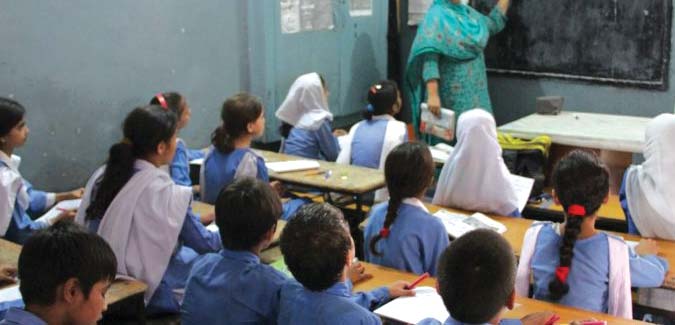
What does the constitution of Pakistan say about education?
- What are the flaws in the education system in Pakistan?
- How do corruption and political instability affect education?
- What is the ranking of Pakistan in terms of the out of school population?
Constitutionally, free and compulsory education is the fundamental right of all Pakistanis. It is the responsibility of the state to educate the children of the ages of 5 to 16 year. The article 25-A of the constitution of Islamic Republic of Pakistan reads:
“The State shall provide free and compulsory education to all children of the age of five to sixteen years in such manner as may be determined by law.”
The present education system is replete with flaws and loopholes. For the fulfilment of its responsibility of educating the public, the government needs a strong and effective education system which can deliver the desired results.
The Education System in Pakistan:
Currently, a six-tier education system in running in Pakistan which consists of the following levels:
- Pre-school – children aged 3 to 5 years
- Primary Education – grades/classes 1 through 5
- Middle/Elementary Education – grades/classes 6 through 8
- High/Secondary Education – grades/classes 9 and 10 (leading to Secondary School Certificate or SSC)
- Intermediate/Higher Secondary Education – grades/classes 11 and 12 (leading to Higher Secondary School Certificate or HSSC)
- University Education – undergraduate, graduate, master and doctorate degrees.
Both the federal and the provincial governments are entitled to run and oversee the literacy programs in the country. The educations running under the central and provincial governments are scattered across the country.
Education System in Pakistan Issues and Problems:
Despite the introduction and implementation of around two dozen policies and plans, the education system in Pakistan is facing numerous issues and problems of grave nature. The literacy rate is still below 60% (2016) which puts a question mark on the effectiveness of the learning infrastructure in the country.
Some of the major education system in Pakistan issues and problems are listed below:
Low Budget Allocation:
Pakistan is one of the countries in the world with lowest budgetary allocation for education. She spends only 2% of its national GDP on education. Consequently, millions of children are out of school in the country, i.e. they are deprived of their fundamental (constitutional) right to free and compulsory education. So, the budgetary allocation for education should be increased from 2 to 7 percent.
Corruption:
While the budget for education is already insufficient, the corrupt elements in the management structure further aggravate the situation by filling their pockets through illegitimate means. So, corruption can be regarded as one of the major factors contributing to the failure of educational policies in Pakistan.
Read More: What is Corruption in Urdu and English
Political Instability:
The unstable political environment also affects the efficiency of education system in Pakistan. Political agitations pose hindrance to the implementation of government policies for improving the standard and quality of learning.
Terrorism and Insecurity:
In the recent past, the country has witnessed a wave of inhuman terrorist attacks on the educational institutions. For example, in the years from 2009 to 2013, as many as 642 attacks were launched by the enemies of education and of humanity. So, the parents feel reluctant to send their children to school. On the other hand, the school going children have to study in an insecure and fearful environment which affects the quality of education.
Untrained Teachers:
As less educated and untrained teachers are employed in the schools, they are unable to impart a good quality education to the students.
Lack of Check and Balance:
The lack of proper check and balance promotes negligent behavior on the part of the administrators, educationists and the educators. If the individuals shirking from their responsibilities are brought to book, the education system in Pakistan can significantly be improved.
Poor Infrastructure:
The poor infrastructure, poorly equipped classrooms and debilitating learning environment make major contribution to the inability and failure of education system in Pakistan to deliver the desired results.
Though the government has launched educational reforms to make the education totally free for the children from poor backgrounds, poverty is still a big hindrance on the way to education. The poor parents prefer making their children economic supporters of the family rather than sending them to schools.
Other education in Pakistan issues and problems include unequal standards of education in the public and private section institutions, lack of technical education, regional disparity, unequal educational opportunities for male and female students, and so on.
Facts about Education System in Pakistan:
- Did you know Pakistan has been ranked as one of the top English speaking nations in the world?
- Around 50% Pakistanis have command over the English language.
- While literacy rate in the Federal Capital, Islamabad, is 87%, only around 9.5% of tribal area females are literate.
- According to a survey conducted in 2016, the literacy rate in Pakistan is 58%.
- The Pakistani universities produce about 445,000 graduates every year.
- Did you known Pakistan has been listed among the countries with the lowest literacy rate?
- The country has the second largest out of the school population (of children) after Nigeria.
- Only 1 in 3 women in Pakistan can read and write.
- According to the findings of Pakistan Social and Living Standards Measurement Survey 2004-5, only 7 percent of girls in the rural areas of Baluchistan are literate.
- The UN World Population Revision 2004 suggests Pakistan will become the 4th largest country by population by 2050.
- As many as 642 terrorist attacks were launched on educational institutions in Pakistan from 2009 to 2013.
- Spending just 2% of her national GDP on education, Pakistan is listed among the countries with the lowest educational budgets. (2004)
Search Here
Ahadees e mubarka, hadith about time in urdu, hadith about eyebrows in urdu, hadith about respecting elders, hadith about praising someone, hadith about lanat - is cursing someone permissible in islam, advertisment.
Recent Posts

Easy Ways To Lose Weight

Apps Helps To Improve Mental Health

A Cook Without Head

Obesity Causes And Treatment in Urdu
Masnoon duain, dua for victory and success, dua for ziddi child, dua for jumma to earn sawab, dua for peace of heart, strange & interesting, samandari raaz batanay wali machli, log hakla ker kion boltay hain, bathroom mein zindagi guzarnay wala khandaan, cooking recipes, social sharing.
- EXPRESS NEWS
- URDU E-PAPER
- ENGLISH E-PAPER
- SINDHI E-PAPER
- CRICKET PAKISTAN
- EXPRESS LIVE
- CAMPUS GURU
- EXPRESS ENTERTAINMENT
- FOOD TRIBUNE
Another education emergency
Government will also have to enhance absorption of educated communities into the job market to incentivise education
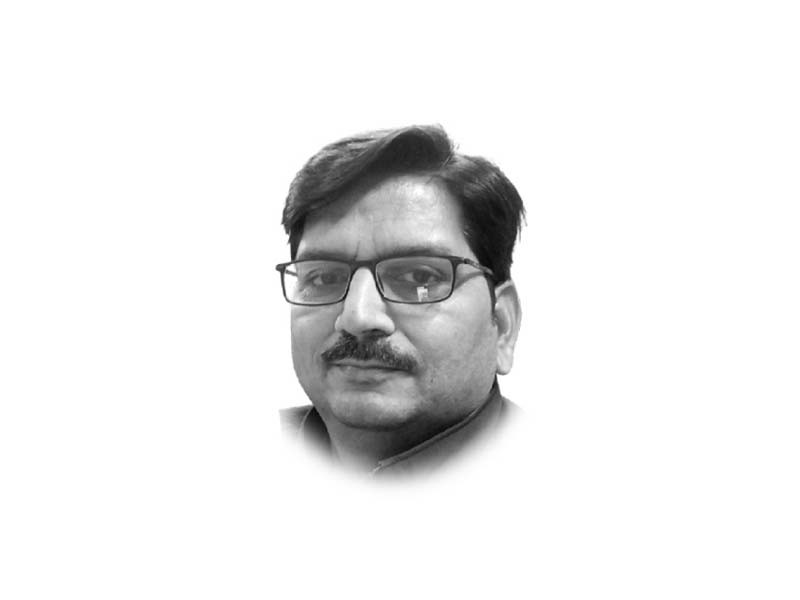
An education emergency has been imposed by the federal government to stem and cure the rot of 26.2 million out-of-school children (OOSC), the second highest in the world according to Unicef. The farce of education emergency has been enacted many a time with no discernible remedial impact. Einstein said: “We cannot solve our problems with the same thinking we used when we created them.”
Malala Yousafzai in a letter to Prime Minister Shehbaz Sharif said: “Currently, 26 million children — predominantly girls in the poorest districts of Pakistan — remain out of school. Furthermore, more than 200,000 teachers’ seats are vacant nationwide.”
The efficacy of steps taken and the genuine concern behind imposing emergencies can be gauged from the slow rate of reduction in OOSC percentage: 33% in 2013-14 to 32% in 2019-20 i.e., one per cent per six years. Also, the humongous number of teacher vacancies reflects the institutionalised state apathy towards education.
The first go-to step taken haphazardly under emergency is to corral all the OOSC into the school premises without removing the demotivating stimuli lurking there. If ever children come back to schools, they sooner or later play truant again either for finding the same unfriendly pedagogical milieu or under socio-economic pressures.
The financial burden in this galloping inflation is proving back-breaking, particularly for those lower financial strata to where 26.2 million OOSC belong. A large number of students at public schools spend their post-school time helping their parents in their work. Consequently, they drop out of the learning process under extreme financial pressure. Also, the technical education that requires fewer years than that of formal education to make them employable has not been given due attention.
One way to retain students up to higher secondary education is to staple its completion with some educational fund or scholarship. The government will also have to enhance the absorption of educated communities into the job market to incentivise education.
As the Chief Minister of Punjab pointed out that teachers in state-owned educational institutions once employed deem themselves employed till retirement. The absence of any check and control at teachers’ performance makes them cling to their jobs parasitically. There is no denying this being the killer cause of institutional failure.
It is, however, intriguing to ascertain the factors behind public teachers’ burnout and smugness. One is the non-seriousness to the cause of education trickled down from the higher echelons. The teachers’ non-teaching duties condition them that they are not meant for teaching children, but rather for conducting board exams, national census, general elections and public rallies.
At private institutions, teachers stay put for the full academic year. One wonders why board exams that pull public teachers out of institutions for performing vigilance duties are not held in after-school hours, as does the Allama Iqbal Open University Islamabad. AIOU uses public buildings and teachers without causing any loss to the formal system. The first prerequisite under any education emergency must be to let teachers teach the students only.
The unavailability of essential facilities such as clean toilets, potable water, proper seats and boundary walls dispels the students from attending the public institutions despite the availability of free education and qualified staff.
The conundrum of medium of instruction in Punjab nullifies the government’s pledge to alleviate the financial burden on parents by providing free books. The books are printed in English to promote English as a medium of instruction in public schools whereas neither students nor teachers afford learning and teaching in English.
The low literacy rate of 62.2% and dismal allocation of 1.7% of the GDP to the education sector reveals the level and validity of the concern of respective governments and their education emergencies.
Published in The Express Tribune, May 20 th , 2024.
Like Opinion & Editorial on Facebook , follow @ETOpEd on Twitter to receive all updates on all our daily pieces.
Comments are moderated and generally will be posted if they are on-topic and not abusive.
For more information, please see our Comments FAQ

Taliban’s dilemma: to attend or skip Doha-III

But is he ready?
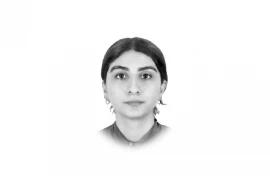
The ‘banality of evil’ in modern India

Chinese EVs and battle against transport emissions

Towards an improved system of financial support for poor
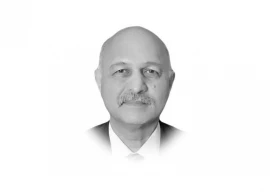
Pakistan’s quest for a foreign policy

IMF's tax demands leave PM in a bind
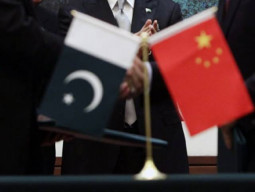
Pakistan seeks $17b from China
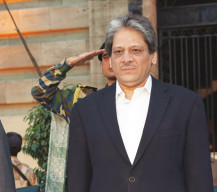
Former Sindh governor decides to return home
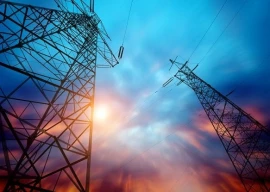
Sindh vows to provide up to 100 units of free electricity

‘Psychopath cult follower’ arrested for making torture videos of wife
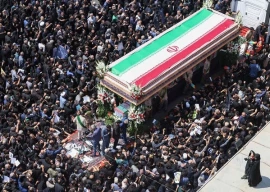
Iran releases 1st investigation report on President Raisi's helicopter crash
- Life & Style
- Prayer Timing Pakistan
- Weather Forecast Pakistan
- Online Advertising
- Subscribe to the Paper
- Style Guide
- Privacy Policy
- Code of ethics
This material may not be published, broadcast, rewritten, redistributed or derived from. Unless otherwise stated, all content is copyrighted © 2024 The Express Tribune.

Today's Paper | May 25, 2024
Education crisis.
PRIMARY grade students at public schools come mostly from the poor and lower middle classes and speak a range of languages as their mother tongue. Unfortunately, when the latter is supplanted by Urdu, English or Arabic, the students find it difficult to communicate, let alone grasp knowledge.
Students from elite classes are privileged; they use advanced technology, watch TV at home and speak English with their parents and friends. What do their disadvantaged peers have to go through? Their schools lack sanitation facilities and potable water; they are malnourished, which has a negative impact on their academic growth. Even at that age, many of them have to supplement the family income. Before any comparisons are made, the public sector should receive more support as an ‘equity measure’.
{try{this.style.height=this.contentWindow.document.body.scrollHeight+'px';}catch{}}, 100)" width="100%" frameborder="0" scrolling="no" style="height:400px;position:relative" src="https://www.dawn.com/news/card/1713456" sandbox="allow-same-origin allow-scripts allow-popups allow-modals allow-forms">
Improving public education is the only answer, rather than worsening it in the name of privatisation — or selecting the naturally gifted to study at elite institutions, as some have proposed. How can those institutes maintain their credibility if only natural talent is chosen? Instead, they must admit average and below-average students and make them outstanding. It may put their systems to the ultimate test but it must also be realised that it is not that our youngsters themselves are below par; rather, it is the badly managed educational system, which limits their abilities.
Picking up natural talent and turning it into a brand will only intensify social stratification. Our English monarchs used the same strategy — constructing certain elite institutes to train students who would carry on their legacy. “I know my children are not brilliant and may not count in higher positions, but they will have powerful acquaintances, since this college has produced all the prominent people,” a father once observed.
What do disadvantaged students have to go through?
Since independence, those in power have represented the same elite-grown entities. What revolutionary services are available for the common man, especially in terms of education? We continue to think and act in the same way, polarising society and using education as a means to do so. Fee tokens for students in private schools, for example, ‘legalises’ education as a commodity, which further strengthens power centres, all the time focusing more on ‘power as knowledge’ rather than ‘knowledge as power’. Education — quality education — is a fundamental human right that cannot be denied. More significantly, it is the obligation of the state’s public schools, and not the private institutions, to educate our children.
What should change is the key question. A systemic overhaul from the top to the bottom tier is required. Shouldn’t it begin with an educationist as the education minister? On a lighter note, if there is not one in the political lot, then we’d better import one….
Let us consider the asymmetries in competence at the highest level, when an officer has sole control of everything — from transfer/posting to policy formation. The officer may not be incompetent, but poor systemic arrangements will cut his talent down to size.
Is it logical to push a person to serve in completely different disciplines for varying lengths of times — from Customs and narcotics, to education, followed by agriculture? How can we make sustainable plans and policies if an officer cannot be retained in a single sector for a longer term? Can’t we have specialised authorities in charge of education for the duration of their service?
Similarly, there is a need to revisit teachers’ appointments, promotions, and age of retirement. For example, ‘age-based’ promotion does not make sense. One study found that students learn more from younger teachers than from older teachers, while we pay older teachers more and promote them to higher grades.
Another debate is whether every person requires formal education and whether we can assure this, given the high rate of population expansion. A proportion of the people may benefit from vocational education to become entrepreneurs and contribute to the economy. China’s success, among other factors, rests on expanding vocational opportunities for its common citizens, using schools as the primary mechanism for offering open and flexible vocational education based on a government-market link. Their houses are small industrial enterprises that contribute significantly to the local economy.
Opening a number of private schools would suit the philanthropist, not the state. States establish systems, develop and implement accountability measures, and ensure strict compliance. Our most common dilemma is viewing education in isolation from the socioeconomic, sociopolitical, and sociocultural landscape in terms of learning design and supportive mechanisms. We hear all the time that political stability is positively correlated with economic stability, and that is indeed the case. The same can be said for education, which has sadly fallen out of sight.
The writer is an educationist.
Published in Dawn, January 2nd, 2023

Education is a privilege — it shouldn’t be

Education for all?

Why bother about education?

دبئی پراپرٹی لیکس میں سابق فوجی افسران کی جائیدادیں بھی شامل

دبئی لیکس: ریت پر محلات بنانے والی پاکستانی شخصیات

کون سے ممالک اسرائیل کو ہتھیار فراہم کرتے ہیں؟

Explained: ICJ Verdict On Genocide Case Against Israel Filed By South Africa

Delays in Passport issuance irk Pakistanis

Why Is TikTok Curbing State-Affiliated Media?

What Exactly Is Non-proliferation?

Boiling Point: What Can Pakistan Do To Tackle Frequent Heatwaves?

How Can Pakistan Scale the Packaging Industry?

Top Stories: Israel Furious As European Trio Recognises Palestinian State

Explained: Defamation Laws
Latest stories.

Archer, Buttler star as England beat Pakistan in second T20

Info minister hails ‘message of unity’ as KP CM Gandapur attends SIFC meet

Suspected target killer with links to MQM-London arrested in Karachi IBO: Rangers

Suspected robber lynched in Karachi, other saved by police from being torched

Sargodha police rescue 2 Christian families from mob, arrest 15 men

India’s massive election faces heatwave challenge in penultimate phase

If the Immigration and Passports DG had his way, you’d never truly be rid of your ex

Scarlett Johansson’s OpenAI feud rekindles Hollywood’s fear of AI

Going loco for local: Dugdugii’s ceramic-ware will elevate your Instagram food game
Most popular.

Record onion exports make consumers pay high prices

Two more ‘RAW-trained’ suspects held in Karachi

In anticipation of mangoes

Climate change ministry warns of more heatwaves in June

Cartoon: 24 May, 2024

UAE president commits to investing $10bn in Pakistan

Sindh police left red-faced after Rangers raid Karachi CTD office

From boom to bust — A balance sheet of Pakistan’s growth patterns over three decades

IMF, Pakistan make ‘significant progress’ on new loan, lender’s mission says

Delhi voters, scarred by Hindu-Muslim riots, want peace

Editorial: Pakistan must give investors a business-friendly climate free of bureaucratic obstacles

Have our authorities succeeded in inventing a new kind of exchange rate regime altogether?

Punjab’s Defamation Act forms part of a series of actions symbolising the breakdown of our democracy

Editorial: A new IMF arrangement is the least of the common man’s problems

Democratic breakdown

Enigmatic exchange rate

Unglamorous dreams
A crisis of power.


An interesting initiative

More pledges
Pemra overreach, enduring threat.

IMF’s unease
Belated recognition, app for gbv survivors, in hot & sour soup.

Understanding Primary School Enrollment in the Free Education Era Through Large-Scale from Punjab, Pakistan: Roadblocks to Meeting the Sustainable Development Goal
- Published: 30 December 2023
- Volume 17 , pages 753–778, ( 2024 )
Cite this article

- Sabika Khalid 1 &
- Endale Tadesse ORCID: orcid.org/0000-0002-4128-5992 1
148 Accesses
Explore all metrics
Pakistan’s government has long been committed to providing its citizens with accessible and universal education. However, these efforts have yielded little gains for society due to several social and economic factors. Subsequently, Pakistan has a lower literacy rate and is one of the lowest in South Asia and the rest of the world. Although such a substantial issue is daunting and weakens the country’s educational system, more evidence is needed that proposes potential implications or interventions to identify the most important in-school factors of primary school enrollment in Pakistan. Therefore, the present study derived a literature review-driven hypothesis and administered a rigorous analysis using the 2018 school census from the Punjab government education commission, showing detailed information on 24,305 public primary schools. The findings of this study assert that the medium of instruction has a considerable impact on primary school enrollment and the availability of qualified teachers. Single-sex schools, WASH facilities, and the security of schools have significant and diverse effects on student enrollment, which may have implications for scholars, educators, and policymakers.
This is a preview of subscription content, log in via an institution to check access.
Access this article
Price includes VAT (Russian Federation)
Instant access to the full article PDF.
Rent this article via DeepDyve
Institutional subscriptions
Similar content being viewed by others

Inclusive education: Developments and challenges in South Africa
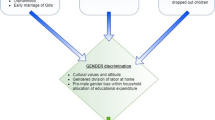
Out-of-school girls in India: a study of socioeconomic-spatial disparities

English Language Education in the Philippines: Policies, Problems, and Prospects
Data availability.
The data that support the findings of this study are available from the corresponding author upon reasonable request.
Adukia, A. (2014). Sanitation and education . Harvard Graduate School of Education.
Adukia, A. (2017). Sanitation and education. American Economic Journal: Applied Economics , 9 (2), 23–59. https://doi.org/10.1257/app.20150083
Article Google Scholar
Ahmad, I., Rauf, M., Rashid, A., Rehma, S., & Salam, M. (2013). Analysis of the problems of Primary Education System in Pakistan. Critical Review of Literature , 4 (2), 324–331.
Google Scholar
Ahmed, J., Wong, L. P., Chua, Y. P., Hydrie, M. Z. I., & Channa, N. (2021). Drinking water, sanitation, and hygiene (WASH) situation in primary schools of Pakistan: The impact of WASH-related interventions and policy on children school performance (pp. 1–19). Environmental Science and Pollution Research.
Alcott, B., & Rose, P. (2015). Schools and learning in rural India and Pakistan: Who goes where, and how much are they learning? PROSPECTS , 45 (3), 345–363. https://doi.org/10.1007/s11125-015-9350-5
Ailaan A. (2015). 25 Million Broken Promises the Crisis of Pakistan’s Out-of-School Children. Islamabad.
Anthonj, C., Githinji, S., Höser, C., Stein, A., Blanford, J., & Grossi, V. (2021). Kenyan school book knowledge for water, sanitation, hygiene and health education interventions: Disconnect, integration or opportunities? International Journal of Hygiene and Environmental Health , 235 , 113756.
Article PubMed PubMed Central Google Scholar
ASER. (2015). Annual status of education report . ASER.
Asif, S., Afzal, I., & Bashir, R. (2020). An Analysis of Medium of Instruction Policies in the Education System of Pakistan with specific reference to English Medium Education. Sir Syed Journal of Education & Social Research , 3 (2). https://doi.org/10.36902/sjesr-vol3-iss2-2020(370-382)
Aslam, M., Malik, R., Rawal, S., Rose, P., & Vignoles, A. (2019). Do government schools improve learning for poor students? Evidence from rural Pakistan. Oxford Review of Education , 45 (6), 802–824.
Aslam, M., & Siddiqui, R. (2003). The determinants of student achievement in government and private schools in Pakistan. The Pakistan Development Review , 841–876.
Birdsall, N., Levine, R., & Ibrahim, A. (2005). Towards Universal Primary Education: investments, incentives, and institutions. European Journal of Education, 40 (3), 2005.
Birdthistle, I., Dickson, K., Freeman, M., & Javidi, L. (2011). What impact does the provision of separate toilets for girls at schools have on their primary and secondary school enrolment, attendance and completion? A systematic review of the evidence (6.). Social Science Research Unit, Institute of Education, University of London.
Branham, D. (2004). The wise man builds his house upon the rock: The effects of inadequate school building infrastructure on student attendance. Social Science Quarterly, 85 (5), 1112–1128. https://doi.org/10.1111/j.0038-4941.2004.00266.x
Bukhari, S. S., & Awan, G. A. (2018). English as a medium of instruction: Investigating the perceptions of secondary School students. Global Journal of Management Social Sciences and Humanities , 4 (4), 85–806.
Bushra, R. (2017). Looking beyond the Household: The importance of School factors in understanding Elementary Grade Retention in Rural Khyber Pakhtunkhwa, Pakistan (Vol. 46, pp. 1–20). Comparative and International Education.
Channa, H. K., Memon, S., & Bughio, A. F. (2016). English medium or no English medium: parental perspectives from Pakistan. Theory and Practice in Language Studies, 6 (8), 1572–1577. https://doi.org/10.17507/tpls.0608.07
Chitrali, J. A., Ahmad, I., Hussain, A., Nabahat, S., & Jan, F. (2013). Terrorism and its effect on education and universalization of primary education in Pakistan. Journal of Law and Society, 44 , 64.
Coleman, R. (2017). Gender and education in Guinea: Increasing accessibility and maintaining girls in school. Journal of International Women’s Studies, 18 , 4.
de Talancé, M. (2016). Better teachers, better results? Evidence from rural Pakistan. The Journal of Development Studies . https://doi.org/10.1080/00220388.2016.1265944
Devi, S., & Devi, A. (2014). Determinants of school enrolment in Pakistan. Journal of Education and Practice, 5 (17), 74–82.
Dostie, B., & Jayaraman, R. (2006). Determinants of school enrollment in Indian villages. Economic Development and Cultural Change, 54 (2), 405–421. https://doi.org/10.1086/497006
Ernawati, E., Sofendi, S., & Silvhiany, S. (2021). English as a Medium of Instruction (EMI): A primary school teachers’ and students’ perceptions. International Journal of Research in Counseling and Education , 5 (1), 24. https://doi.org/10.24036/00414za0002
Fareed, M., & Ashraf, A. (2019). Medium of instruction in education: Perceptions of teachers and students from Pakistani School, College and University. FWU Journal of Social Sciences , 13 (3), 134–143.
Fatima, H., & Fatima, A. (2017). A critically review of Pakistan Education system compare with iran education system. International Journal of Social Science, 6 (4), 233–244. https://doi.org/10.5958/2321-5771.2017.00027.8
Gao, C., Khalid, S., & Tadesse, E. (2023). Understanding school enrollment in the free education era: Roadblocks to meeting the sustainability development goal. European Journal of Education. https://doi.org/10.1111/ejed.12600
Ghuman, S., & Lloyd, C. (2010). Teacher absence as a factor in gender inequalities in access to primary schooling in rural Pakistan. Comparative Education Review, 54 (4), 539–554. https://doi.org/10.1086/654832
Gillani, A. A. (2021). The association between presence of sanitation facilities and school enrolment in Pakistan. World Development Perspectives , 21 , 100289.
Guimbert, S., Miwa, K., & Nguyen, D. T. (2008). Back to school in Afghanistan: Determinants of school enrollment. International Journal of Educational Development , 28 (4), 419–434. https://doi.org/10.1016/j.ijedudev.2007.11.004
Gupta, R. (2019). Sanitation, Ek Prem Katha: The Impact of Sanitation on Education in Indian Government Schools Scripps Senior Theses. 1260.
Habib, M. (2013). Education in Pakistan’s Punjab: Outcomes and interventions. The Lahore Journal of Economics , 18 , 21–48.
Hamza, A. (2016). The impact of building toilets on school enrollment: down the drain? Unpublished Master’s degree fulfillment Thesis, Faculty of the Graduate School of Arts and Sciences, Georgetown University, Washington, USA.
Hanushek, E. A. (2006). School resources. In Handbook of the economics of education , 2 , 865–908.
Haugen, C. S., Klees, S. J., Stromquist, N. P., Lin, J., Choti, T., & Corneilse, C. (2014). Increasing the number of female primary school teachers in African countries: Effects, barriers and policies. International Review of Education , 60 , 753–776.
Hayat, A. (2017). The relationship between access to toilets and school enrollment in Pakistan. Unpublished Master’s degree fulfillment Thesis, Faculty of the Graduate School of Arts and Sciences, Georgetown University, Washington, USA.
Hussain, A. (2016). Impact of terrorism on education in Pakistan. Journal of Professional Research in Social Sciences , 3 (01), 1.
Iddrisu, A. M., Danquah, M., & Quartey, P. (2016). Analysis of school enrollment in Ghana: A sequential approach. Review of Development Economics . https://doi.org/10.1111/rode.12302
Javed, A. (2020). Youth development in Pakistan: A provincial analysis. Journal of Development Policy, Research & Practice (JoDPRP) , 4 (1), 57–79.
Jasper, C., Le, T. T., & Bartram, J. (2012). Water and sanitation in schools: A systematic review of the health and educational outcomes. International Journal of Environmental Research and Public Health , 9 (8), 2772–2787.
Jordanova, T., Cronk, R., Obando, W., Medina, O., Kinoshita, R., & Bartram, J. (2015). Water, sanitation, and hygiene in schools in low socio-economic regions in Nicaragua: A cross-sectional survey. International Journal of Environmental Research and Public Health, 12 (6), 6197–6217. https://doi.org/10.3390/ijerph120606197
Kalim, U. (2023). The impact of school resources on student enrollment: An empirical investigation of different category public schools in Pakistan. SN Social Sciences , 3 (6), 85.
Khadijah, N. (2017). Building School latrines in India to increase School Enrollment . Chicago Policy Review, (Online).
Khalid, S., Tadesse, E., & Gao, C. (2021). School facilities are grooming primary schools academic performance in Pakistan: A longitudinal evidence from Punjab Province. Asian Social Science, 17 , 42. https://doi.org/10.5539/ass.v17n1p42
Khan, F., & Javaid, U. M. (2019). Exploring the effect of terrorism on education sector: a case study of Khyber Pakhtunkhwa- Pakistan. City University Research Journal, 9 (2), 340–349.
Kim, H., & Rhee, D. E. (2019). Toilets for education: Evidence from Kenya’s primary school-level data. International Journal of Educational Development , 70 , 102090.
Kuno, C. B., Hein, S., Frankel, L., & Kim, H. J. (2021). Children’s schooling status: Household and individual factors associated with school enrollment, non-enrollment and dropping out among Ugandan children. International Journal of Educational Research Open , 2 , 100033.
Latif, A. (2009). A critical analysis of school enrollment and literacy rates of girls and women in Pakistan. Educational Studies, 45 (5), 424–439. https://doi.org/10.1080/00131940903190477
Lloyd, C. B., Mete, C., & Sathar, A. Z. (2005). The effect of gender differences in primary school access, type, and quality on the decision to enroll in Rural Pakistan. Economic Development and Cultural Change, 53 (3), 685–710. https://doi.org/10.1086/427042
Mahboob, A. (2002). “No English, no future!” Language policy in Pakistan. In S. Obeng, & B. Hartford (Eds.), Political independence with linguistic servitude: The politics about languages in the developing world (pp. 15–39). NOVA Science
Majhi, H., & Mallick, H. (2019). Infrastructural development and enrollment in elementary education in Odisha. Economic Affairs, 64 (2), 377–385.
Malik, R. A. (2013). Differential effects of single sex versus Coed Education on the personality development of primary school students. Pakistan Journal of Social Sciences (PJSS) , 33 (1), 149–162.
Malik, R., & Mirza, M. (2014). Gender differential academic achievement of students in single-sex and coeducational primary schools in Pakistan. Bulletin of Education and Research , 36 (1), 1–14.
Mansoor, S. (2005). Language planning in higher education: A case study of Pakistan . Karachi.
Miller, E. (2014). Terrorist Attacks on Educational Institutions. Report. National Consortium for the study of Terrorism and responses to Terrorism . University of Maryland. START.
Moyi, P. (2012). Who goes to school? School enrollment patterns in Somalia. 32(1), 163–171. https://doi.org/10.1016/j.ijedudev.2010.09.002
Oseni, I. O., Akinbode, S. O., Babalola, D. A., & Adegboyega, S. B. (2020). Government spending and school enrolment in sub-saharan Africa: A system GMM approach. Journal of Economics & Management , 40 (2), 91–108. https://doi.org/10.22367/jem.2020.40.05
Pakistan Millennium Development Goals Report. (2013). Ministry of planning, development and reform. Government of Pakistan.
Pasha, H. A. (2020). Pakistan national human development report 2020.
Pathan, H., Channa, K., Memon, S., & Shah, W. (2018). Myths and realities about language of instruction in Pakistan: Parental perspective. Theory and Practice in Language Studies , 8 (8), 1055–1063. https://doi.org/10.17507/tpls.0808.20
Petrosino, A., Morgan, C., Fronius, T. A., Tanner-Smith, E. E., & Boruch, R. F. (2012). Interventions in developing nations for improving primary and secondary school enrollment of children. A systematic review. Campbell Systematic Reviews, 2012 , 19. https://doi.org/10.4073/csr.2012.19
Punjab Education Sector Plan 2019/20 – 2023/24. (2018). Government of the Punjab, Pakistan.
Rahman, T. (1997). The medium of instruction controversy in Pakistan. J ournal of Multilingual and Multicultural Development, 18 (2), 145–154. https://doi.org/10.1080/01434639708666310
Rahman, T. (2020). English in Pakistan: Past, present and future. In R. A. Giri, A. Sharma & J. D'Angelo (Eds.), Functional Variations in English, Multilingual Education (pp. 127–148). https://doi.org/10.1007/978-3-030-52225-4_9 . Springer, Cham
Rahman, K., Habib, Z., & Kataria, J. R. (2018). Factors affecting performance of primary schools teachers in terrorism affected areas: A case of District Swat. South Asia Journal of South Asian Studies, 33, 491 – 511.
Ramzan, M., Uzair-ul-Hassan, M., Parveen, I., & Aziz, T. (2017). School choice autonomy- A source of generating inequities in Pakistan. Journal of Educational Research , 20 (2), 184–200.
Rashid, A., Muzaffar, I., Dar, F., & Butt, S. (2016). The issue of English as a medium of instruction in primary schools in Pakistan. In Z. Babaci-Wilhite (Ed.), Human rights in Language and STEM Education . Sense Publishers. https://doi.org/10.1007/978-94-6300-405-3_11
Ray, R., Datta, & Rajlakshmi (2017). Do separate female toilets in primary and upper primary schools improve female enrollment? A case study from India. Children and Youth Services Review , 79 , 263–273. https://doi.org/10.1016/j.childyouth.2017.06.020
Sajid, G., & Khan, M. (2016). Determinants of primary school enrollment in Pakistan: Is poverty a hurdle in the way of educational attainment? The Pakistan Journal of Social Issues, 7 , 1–18.
Sathar, Z., & Lloyd, C. (1994). Who gets primary schooling in Pakistan: Inequalities among and within families. The Pakistan Development Review , 33 (2), 103–134.
Sclar, G. D., Garn, J. V., Penakalapati, G., Alexander, K. T., Krauss, J., Freeman, M. C., & Clasen, T. (2017). Effects of sanitation on cognitive development and school absence: A systematic review. International Journal of Hygiene and Environmental Health , 220 (6), 917–927.
Shoeb, R., Ahmad, M., & Iftikhar, A. (2017). History of education in Punjab, 1999–2008: An analysis. Journal of the Research Society of Pakistan, 54 (2), 309–323.
Tahir, B. A., Ahmad, M. N., & Sultana, R. (2018). Access to safe drinking water and wash facilities in schools of District Chiniot, Pakistan, and awareness of waterborne diseases among teachers and students. International Journal of Economic and Environmental Geology, 9 (4), 20–25.
Takahashi, K. (2011). Determinants of Indonesian rural secondary school enrolment: Gender, neighborhood and school characteristics. Bulletin of Indonesian Economic Studies, 47 (3), 395–413. https://doi.org/10.1080/00074918.2011.619053
Tanoli, M. A., Khan, M. I., & Majoka, M. I. (2021). English as medium of instruction at primary level. Problems Faced by Teachers and Students Sjesr, 4 (2), 167–174.
Tayyaba, S. (2012). Rural-urban gaps in academic achievement, schooling conditions, student, and teachers’ characteristics in Pakistan . International Journal of Educational Management.
Book Google Scholar
Thakadu, O. T., Ngwenya, B. N., Phaladze, N. A., & Bolaane, B. (2018). Sanitation and hygiene practices among primary school learners in Ngamiland district, Botswana. Physics and Chemistry of the Earth Parts A/B/C, 105 , 224–230.
Toor, I. A., & Parveen, R. (2004). Factors influencing girls’ primary enrolment in Pakistan. The Lahore Journal of Economics , 9 (2), 141–157.
UNESCO, U. (2019). New methodology shows that 258 million children, adolescents and youth are out of school out-of-school children, adolescents, and youth: Global status and trends no progress in reducing out-of-school numbers.
UNICEF. (2018). Drinking water, sanitation and hygiene in schools: Global baseline report 2018 .
Xuepei, Z., Jinshan, Y., & Tong, Z. (2019). Comparative study of primary education in China and Pakistan-1947-2018. Journal of the Research Society of Pakistan, 56 (1), 16–180.
Download references
The study is conducted without any financial support.
Author information
Authors and affiliations.
College of Teacher Education, Zhejiang Normal University, Wu Cheng Qu, Jinhua, Zhejiang Province, 321017, China
Sabika Khalid & Endale Tadesse
You can also search for this author in PubMed Google Scholar
Corresponding author
Correspondence to Endale Tadesse .
Ethics declarations
Competing interests.
The authors don’t have any conflict of interest to disclose.
Additional information
Publisher’s note.
Springer Nature remains neutral with regard to jurisdictional claims in published maps and institutional affiliations.
Rights and permissions
Springer Nature or its licensor (e.g. a society or other partner) holds exclusive rights to this article under a publishing agreement with the author(s) or other rightsholder(s); author self-archiving of the accepted manuscript version of this article is solely governed by the terms of such publishing agreement and applicable law.
Reprints and permissions
About this article
Khalid, S., Tadesse, E. Understanding Primary School Enrollment in the Free Education Era Through Large-Scale from Punjab, Pakistan: Roadblocks to Meeting the Sustainable Development Goal. Child Ind Res 17 , 753–778 (2024). https://doi.org/10.1007/s12187-023-10102-5
Download citation
Accepted : 13 December 2023
Published : 30 December 2023
Issue Date : April 2024
DOI : https://doi.org/10.1007/s12187-023-10102-5
Share this article
Anyone you share the following link with will be able to read this content:
Sorry, a shareable link is not currently available for this article.
Provided by the Springer Nature SharedIt content-sharing initiative
- Primary school
- Medium of instruction
- Find a journal
- Publish with us
- Track your research
aaj ik aur baras biit gayā us ke baġhair
jis ke hote hue hote the zamāne mere
The non-fictional literature written in Urdu is an extraordinary masterpiece in itself. Whether it is criticism or articles written on literature, art, culture, civilization and history, these writings have afforded a new dimension to the literary, social, and cultural discourse of the subcontinent. Presenting, a comprehensive selection of all such writings to give you more food for thought than ever.

A. S Bukhari
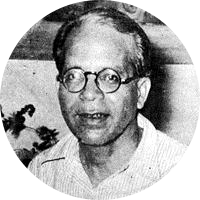
Aale Ahmad Suroor
One of the founders of modern Urdu criticism.
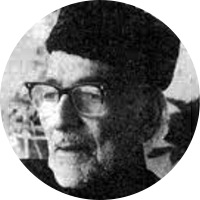
Aal-e-Raza Raza
Prominent poet who mastered the poetic idiom of Lucknow poetry.
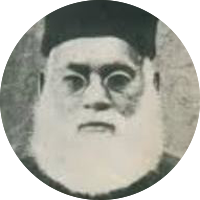
Abdul Halim Sharar
A prominent scholar, author, translator, and novelist of twentieth century. Had a keen eye on the socio-cultural life of Lucknow.
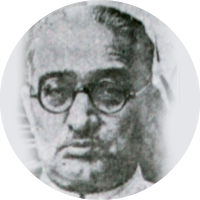
Abdul Majeed Salik
Prominent poet and journalist, also the editor of 'Zamindaar', an important newspaper of his times. Also authored 'Zikr-e-Iqbal' and 'Muslim Sahaafat Hindustan Mein'
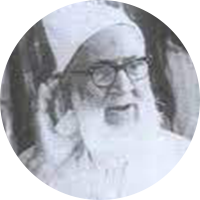
Abdul Majid Dariyabadi

Abdullah Malik

Abdullah Nadeem
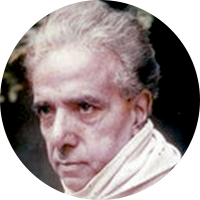
Abdur Rahman Chughtai
painter artist and intellectual from Pakistan
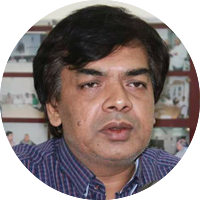
Abrar Mojeeb
Known for his acute observations of social realities among the contemporary fiction writers and their representation in his fiction.
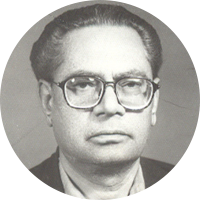
Abul Ejaz Hafeez Siddiqi
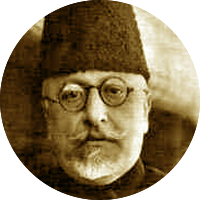
Abul Kalam Azad
One of the front-rank leaders of Indian freedom movement and a well-known scholar.
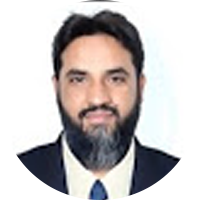
Afzal Misbahi
Assistant Professor, MMV, Banaras Hindu University, Varanasi
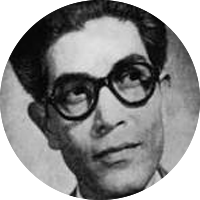
Ahmad Imtiyaz
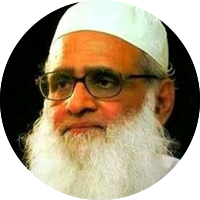
Ahmad Javaid
One of the most prominent contemporary Pakistani poets
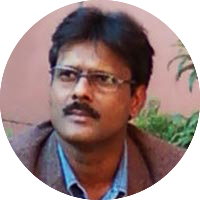
Ahmad Mahfuz
Well-known critic, poet, and Urdu faculty at Jamia Millia Islamia, known for his critical book on MeerTaqi Meer
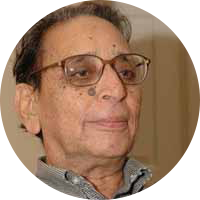
Ahmad Mushtaq
One of the leading and reputed Pakistani poets known for his neo-classical tone, equally well-known in India, lives in Houston USA.
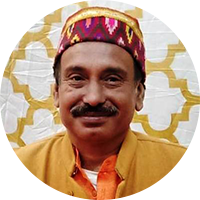
Ajay Malviya
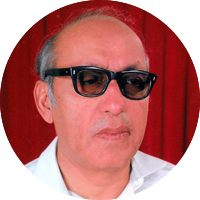
Akhtar Husain Raipurii
Noted progressive critic, linguist, and story writer; also translated literary works from Bangla and English.
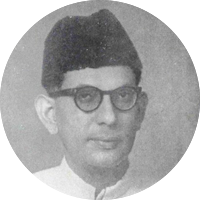
Akhtar Orenvi
Prominent critic, scholar, fiction writer and poet also known for his romantic poetry.
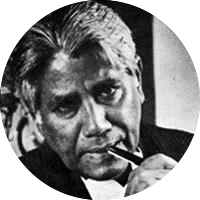
Akhtarul Iman
One of the pillars of modern Urdu Nazms & Dialogue writer. Wrote dialogues for more than hundred films including "Waqt" & "Qanoon". (Jin ke ghar sheeshe ke hote hain wo doosron par pather nahin phenkte-One of his dialogues made famous by Rajkumar in Film Waqt).

Ali Sardar Jafri
One of the most celebrated progressive poets, literary critic, public intellectual and editor.Contemporary of Faiz Ahmad Faiz. Recipient of Gyanpeeth Award. Produced documentaries on Urdu poetry.

Altaf Gauhar
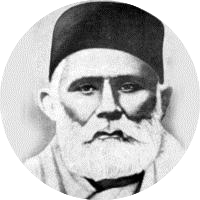
Altaf Hussain Hali
One of the founders of Urdu criticism. Outstanding pre-modern poet. Famous for writing Yaadgar-e-ghalib the first biography of Mirza Ghalib.

Amir Hamza Saqib
One of the prominent new generation Indian Urdu poets.
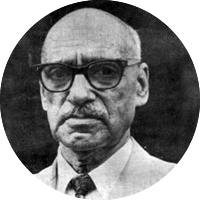
Andaleeb Shadani
Known for his popular ghazal 'Der lagi aane mein lekin…' sung by various singers

Ansar Nasiri
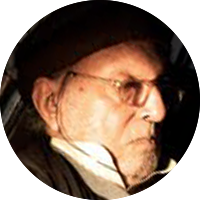
Anwar Sadeed
Prominent Pakistani critic, researcher and columnist; an author of many books apart from 'Urdu Adab ki Tehreekein' and 'Urdu Afsaane Mein Dehaat ki Peshkash'; also assisted in editing several literary journals and newspapers

Aqeel Ahmad Siddiqi

Aquil Ziyad
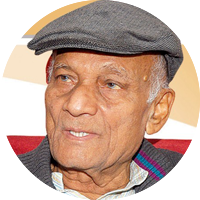
Asad Mohammad Khan
Prominent Urdu fiction writer from Pakistan who also occasionally writes poetry
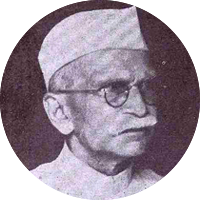
Asar Lakhnavi
Prominent among the later poets of Lucknow School, known for his individual signature. Also served as Additional Commissioner, Education Minister, Home Minister, and officiating Prime Minster in the Government of Kashmir.
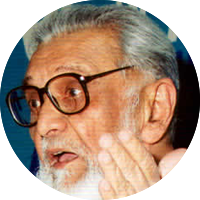
Ashfaq Ahmad
Prominent Pakistani fiction writer, famous for the story “Gadaria”.
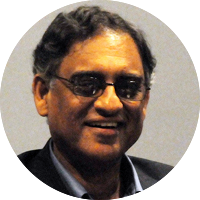
Asif Farrukhi
One of prominent short story writers, known for his literary journalism.
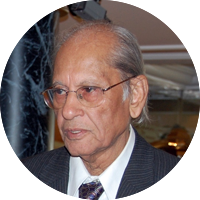
Aslam Farrukhi
Eminent contemporary Pakistani Urdu fiction writer, critic,editor & academician. Father of writer & translator Asif Farrukhi.
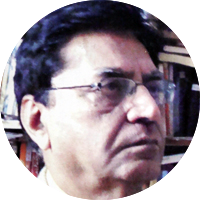
Prominent critic and poet, worked as professor of Urdu in Delhi University

Azeezul Haq
Join rekhta family.
Sign up and enjoy FREE unlimited access to a whole Universe of Urdu Poetry, Language Learning, Sufi Mysticism, Rare Texts
Jashn-e-Rekhta | 8-9-10 December 2023 - Major Dhyan Chand National Stadium, Near India Gate - New Delhi
Rekhta Foundation
Devoted to the preservation & promotion of Urdu
Rekhta Dictionary
A Trilingual Treasure of Urdu Words
Online Treasure of Sufi and Sant Poetry
World of Hindi language and literature
The best way to learn Urdu online
Rekhta Books
Best of Urdu & Hindi Books
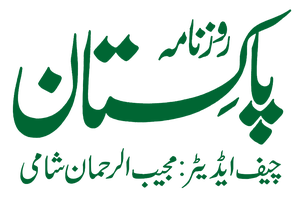
شروع میں بولنگ ملے یا بعد میں فرق نہیں پڑتا، عماد وسیم
پولیس وردی میں ڈاکوؤں نے 2کروڑسے زائد کا سامان لوٹ لیا, ستاروں کی روشنی میں آپ کا آئندہ ہفتہ کیسا گزرے گا؟, پاکستان تحریک انصاف نے روزانہ کی بنیاد پر احتجاج کا اعلان ..., اپنے افراد خانہ کیساتھ روابط کے ضمن میں میری سوچ کا محور یہی ..., بچے بہت الجھن اور پریشانی میں مبتلا تھے، وضاحت طلب نظروں سے ..., آب وہوا, مریم نواز ڈاکٹر انصر اظہر کو کب بلائیں گی؟, نیٹ میٹرنگ سے گراس میٹرنگ تک, گندم کا سدا بہار بحران, رشتہ دیکھنے کی رسم اورہمارا معاشرہ, ایرانی صدر کی شہادت، ذمہ دار کون؟, لانا فضل الرحمن، ملکی سیاست کے اہم کردار, تنزلی کی نشانی، چہروں پر مسکراہٹ , بھنور میں پھنسا…… پرائیویٹ حج سیکٹر مشکلات سے نکل پائے گا؟(قسط2), انفنٹری کا مستقبل (3), حکمرانی کا کروفر اور بدحال عوام, ابراہیم رئیسی , سیاسی عدم استحکام در آیا؟, کیا ٹیکنالوجی کے بغیر آج کے انسان کا گذارا ہے؟, ایک دن کسان کا, قومی سلامتی کے ذمہ داروں کی توجہ کے لئے, سازشیں نہیں پولیس افسران کو اپنے کام پرتوجہ دینی چاہیے, واقعات اور شکوک و شبہات, پاکستان کے طاقت ور اداروں کا ماضی, ہیٹ ویو, جمہوری سوچ دیانتدار کارکردگی، ترقی کے عوامل, پاکستان میں ٹریفک کے مسائل, توہین کا نیا قانون اور میری غیر مشروط معانی کے ساتھ معروضات, مئی کا مہینہ آن پہنچا , کاش یہ معجزہ ہو جائے, بجٹ 2024-25ء کی ایک جھلک, *خطا کار سمجھے گی دنیا کسے *, خطاب بہ جوانان اسلام , ہتک عزت قانون اور پنجاب حکومت , صاف ستھرا، صحت مند پنجاب, یہ آپ کا بحران ہے، پاکستان کا نہیں, ذہنی غربت, اُفق علم و ادب کے تابناک خورشید ڈاکٹر خورشید الحسن رضوی (ستارہئ امتیاز) , حقوق کی جدوجہد ریاست سے ٹکراؤ نہیں؟, اختلاف برائے اختلاف کی سیاست کا خاتمہ ہونا چاہیے, پاکستان میں گداگری کے فن میں جدیدیت (قسط2), ویڈیو گیلری, انہی ہاتھوں سے اپنی بیوی کو انگوٹھی پہناؤں گا ہاتھوں سے بوتلیں توڑنے والا کاشف ٹک ..., انتہائی دلکش سپورٹس کار کیا سٹنگر جو پورے پاکستان میں صرف ایک ہی ہے, ریڑھی پر بکنے والے پوری پکوڑے، لوگوں کا رش اتنا کہ سارا سامان 4 گھنٹے میں ہی ختم ہو ....
You are subscribed Successfully
- Privacy Policy
- Remedial Plan
- Summer Vacation Activity
- Teachers Support Material
- EOE Assessment Papers
- Story Video
- Teaching Aids
- Copy Series
- Life skills
- Life skills in the light of Quran, Hadith & Iqbal’s Poetry
- Pre year 1 – Life Skills Stories
- Pre year 2 – Life Skills Stories
- Pre year 3 – Life Skills Stories
- Class 1 – Life Skills Stories
- Class 2 – Life Skills Stories
- Class 3 – Life Skills Stories
- Class 4 – Life Skills Stories
- Class 5 – Life Skills Stories
- Social Skills
- Theme Boards
- English Story Boards
- Urdu Story Boards
- English Alphabets
- Urdu Huroof
- 12 Writting Crafts
- Life Skills
- 26 Sounds Story Boards
- AI Activity Books
- How to use EAST Video Lessons?
- Books Training
- Informative
- Physical Exercise
- Pre Primary Syllabus
- Primary Syllabus
Articles in Urdu
- Bihar Board
TBSE Result
Cfa institute, srm university.
- MBOSE Result 2024
- TBSE Result 2024
- Maharashtra SSC Result
- Odisha Board Result
- RBSE 10th Result 2024
- CBSE Board Result 2024
- Shiv Khera Special
- Education News
- Web Stories
- Current Affairs
- नए भारत का नया उत्तर प्रदेश
- School & Boards
- College Admission
- Govt Jobs Alert & Prep
- GK & Aptitude
- UP Board Class 10
UP Board Class 10 Urdu Syllabus 2024-25: Download Urdu Curriculum PDF Here.
U p board class 10 urdu syllabus 2024-25 out: upmsp has released the class 10 urdu syllabus for 2024-25 session. get the direct link to download the complete syllabus in the pdf format. check out the up board 10th class urdu syllabus pdfs in this article..
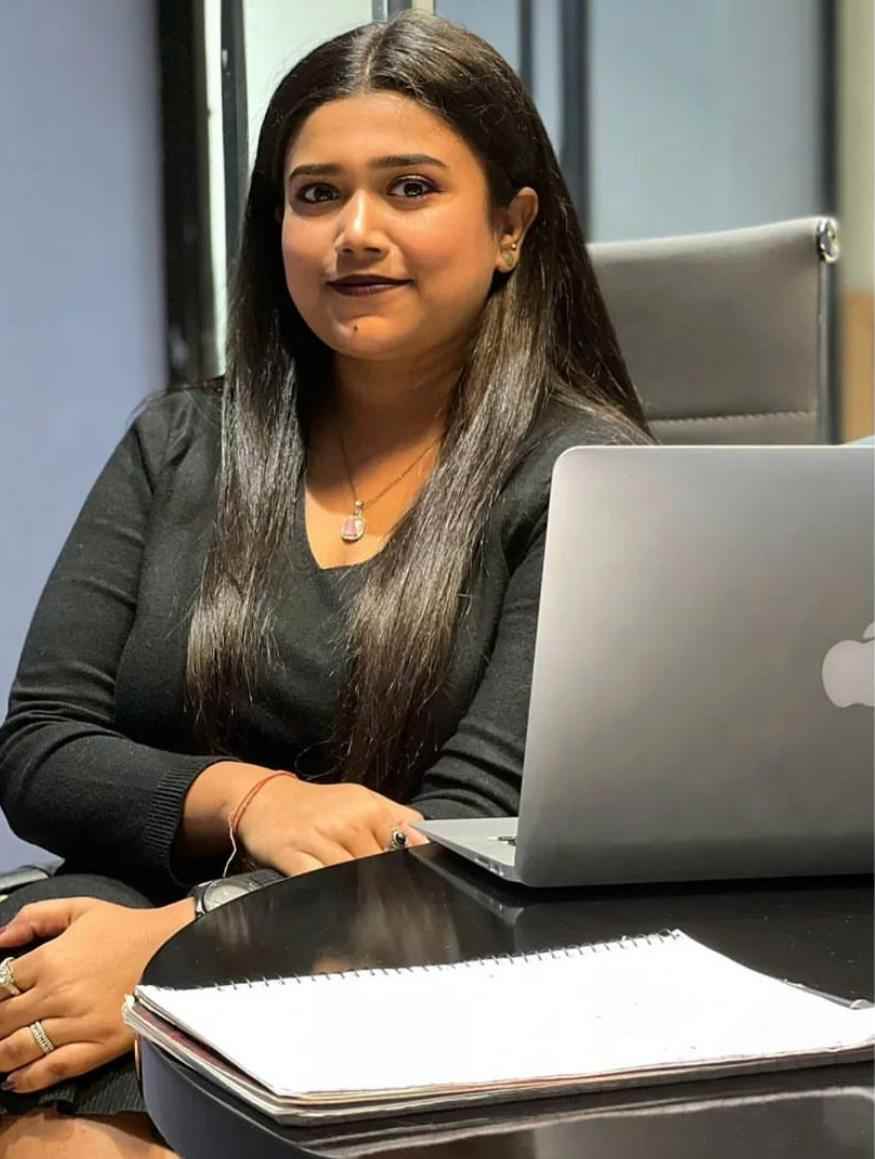
Also Check: UP Board Class 10 Syllabus (All subject)
Up board class 10 urdu syllabus 2024-25 .
There will be a written exam of 70 marks in the subject and internal assessment of 30 marks will be done at the school level. The examination will be of three hours. Students can find course structure, mark allocation and assessments. Find below the images for more details and better understanding:
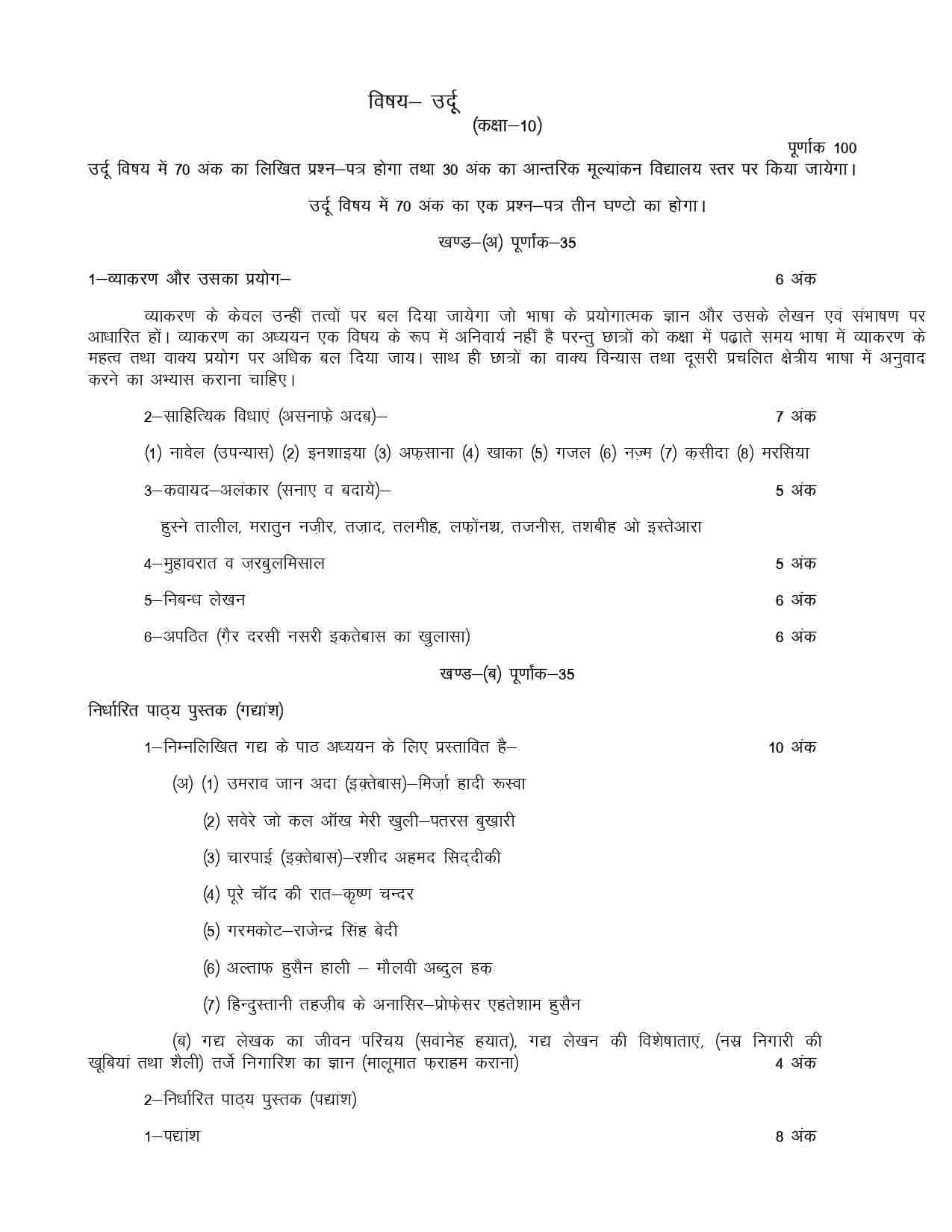
Download UP Board Class 10 Urdu Syllabus 2024-25 PDF
Up board class 10 english syllabus 2024-2025, up board class 10 sanskrit syllabus 2024-2025.
Get here latest School , CBSE and Govt Jobs notification in English and Hindi for Sarkari Naukari and Sarkari Result . Download the Jagran Josh Sarkari Naukri App . Check Board Result 2024 for Class 10 and Class 12 like CBSE Board Result , UP Board Result , Bihar Board Result , MP Board Result , Rajasthan Board Result and Other States Boards.
- Tripura Board 10th, 12th Result 2024
- Meghalaya SSLC Result 2024 Roll Number
- MBOSE Meghalaya 10th, 12th Arts Result 2024
- megresults.nic.in Result 2024
- MBOSE HSSLC Arts Result 2024
- MBOSE SSLC Toppers List 2024
- megresults.nic.in Arts Result 2024
- tbse.tripura.gov.in Result 2024
- TBSE 10th, 12th Toppers List 2024
- UP Board Class 10th Exam Syllabus
Latest Education News
BSE Odisha 10th Result 2024 LIVE: Odisha Board Class 10 Results Today at Official Website at bseodisha.ac.in, How Will You Get Marksheet?
National Memorial Day Parade 2024: Check The List Of Events & Ceremonies In The US States
JEE Advanced Exam Analysis 2024 (Paper 1, 2): Subject-Wise Exam Review, Difficulty Level, Student Reaction and Expert Opinion
Memorial Day 2024: Check Date, Is this a Federal Holiday?
IPL 2024 SRH Players: सनराइजर्स हैदराबाद के खिलाड़ियों की पूरी लिस्ट यहां देखें
IPL 2024: IPL इतिहास में सबसे तेज गेंद फेंकने वाले गेंदबाज कौन है?
DL New Rules 2024: RTO गए बिना ड्राइविंग टेस्ट कैसे करें पास? जानें यहां
SRH IPL 2024 Match Schedule: सनराइजर्स हैदराबाद के सभी मैचों का वेन्यू, डेट और टाइम यहां देखें
IPL 2024 KKR Players: कोलकाता नाइट राइडर्स के खिलाड़ियों की Updated लिस्ट यहां देखें
IPL 2024 Live Streaming: मोबाइल या टीवी कहां और कैसे देखें IPL Final 2024 का LIVE टेलीकास्ट?
(Updated) KKR vs SRH Head to Head in IPL: Check Stats, Records and Results
ICC Cricket World Cup 2027: कहां खेला जायेगा अगला क्रिकेट वर्ल्ड कप, कितनी टीमें लेंगी भाग जानें सब कुछ
IPL Winners List: साल 2008 से 2024 तक आईपीएल टाइटल विजेताओं की पूरी सूची यहां देखें
[Official] Odisha Board 10th Result 2024 Releasing Today, Check Latest News and Updates Here
Odisha 10th Result Marksheet Download Link Active At 11:30 AM Today, Check Matric Result Updates Here
Picture Puzzle IQ Test: Use Your Hawk Eyes To Spot The Hidden Crown In 8 Seconds!
Orissa 12th Science Result 2024: Exam Date and Expected Result Dates at orissaresults.nic.in
BSE Odisha Result 2024: CHSE Plus 2/HSC Result Date and Time at orissaresults.nic.in
BSE Odisha 10th Result 2024: CHSE Odisha HSC Exam Date and Expected Result Dates bseodisha.nic.in
Odisha Board Plus Two Result 2024: CHSE Plus Two (+2) Exam Date and Expected Result Dates at orissaresults.nic.in
- Share full article
Advertisement
Supported by
Guest Essay
Higher Education Needs More Socrates and Plato

By Ezekiel J. Emanuel and Harun Küçük
Dr. Emanuel and Dr. Küçük are on the faculty of the University of Pennsylvania, where Dr. Emanuel is a professor and the vice provost for global initiatives and Dr. Küçük is an associate professor of the history and sociology of science.
The right attacks colleges and universities as leftist and woke. Progressives castigate them as perpetuating patriarchy and white privilege. The burdens of these culture war assaults are compounded by parents worried that the exorbitant costs of higher education aren’t worth it.
No wonder Americans’ faith in universities is at a low. Only 36 percent of Americans have confidence in higher education, according to a survey by Gallup last year, a significant drop from eight years ago. And this was before colleges and universities across the country were swept up in a wave of protests and counter-protests over the war in Gaza.
But the problems facing American higher education are not just the protests and culture war attacks on diversity, course content, speech and speakers. The problem is that higher education is fundamentally misunderstood. In response, colleges and universities must reassert the liberal arts ideals that have made them great but that have been slipping away.
By liberal arts, we mean a broad-based education that aspires to send out into society an educated citizenry prepared to make its way responsibly in an ever-more complex and divided world. We worry that at many schools, students can fulfill all or most of their general education requirements and take any number of electives without having had a single meaningful discussion that is relevant to one’s political life as a citizen.
Over the past century, what made American higher education the best in the world is not its superiority in career training, but educating students for democratic citizenship, cultivating critical thinking and contributing to the personal growth of its students through self-creation. To revive American higher education, we need to reinvigorate these roots.
In Europe and many countries elsewhere, colleges and universities have undergraduates specialize from Day 1, focusing on developing area-specific skills and knowledge. College students are trained to become doctors, lawyers or experts in international relations, English literature or computer science.
In the United States, European-style specialization for medical, legal, business or public policy careers is the purpose of post-collegiate professional schools. Traditionally, the American college has been about imparting a liberal arts education, emphasizing reasoning and problem solving. Those enduring skills are the critical ingredients for flourishing companies and countries.
Historically, students arriving on American college campuses spent a majority of their first two years taking classes outside their projected majors. This exposed them to a common curriculum that had them engage with thoughtful writings of the past to develop the skills and capacity to form sound, independent judgments.
Over the past half century, American colleges and universities have moved away from this ideal , becoming less confident in their ability to educate students for democratic citizenship. This has led to a decline in their commitment to the liberal arts, a trend underscored in the results last year of a survey of chief academic officers at American colleges and universities by Inside Higher Ed. Nearly two-thirds agreed that liberal arts education was in decline, and well over half felt that politicians, college presidents and university boards were increasingly unsympathetic to the liberal arts.
Today, there is almost no emphasis on shared courses among majors that explore and debate big questions about the meaning of equality, justice, patriotism, personal obligations, civic responsibility and the purpose of a human life. Majors that once required only eight or 10 courses now require 14 or more, and students are increasingly double majoring — all of which crowds out a liberal arts education. Ambitious students eager to land a prestigious consulting, finance or tech job will find it too easy to brush aside courses in the arts, humanities and social and natural sciences — the core of a liberal education.
The devaluing of the first two years of a shared liberal arts education has shortchanged our students and our nation. Educating young adults to be citizens is why the first two years of college still matter.
To that end, the so-called Great Books have long been the preferred way to foster citizenship. This approach is not, contrary to critics on the left and right, about sanctifying specific texts for veneration or a mechanism for heritage transmission.
Books by Plato, Aristotle, Hobbes, Locke, Kant, Emerson, Thoreau, Whitman as well as Wollstonecraft, Austen, Woolf, Baldwin, Hurston and Orwell are worthy of introductory collegiate courses for students of all majors. These writers address the fundamental questions of human life. They explore the ideas of self-determination, friendship, virtue, equality, democracy and religious toleration and race that we have all been shaped by.
As students address those big questions, the Great Books authors provide a road map as they challenge and criticize one another and the conventional wisdom of the past. The Socrates of Plato’s dialogues is the exemplar — asking about beliefs and then subjecting them to respectful but critical analysis and skepticism.
These books are best studied in small seminar discussions, which model and inculcate in students democratic behavior. This discourse is an antidote to the grandstanding in today’s media and social media.
The teacher is less an expert in specific writers and more a role model for intellectual curiosity, asking probing questions, offering critical analyses and seeking deeper understanding. In an idealized Socratic fashion, these discussions require listening at length and speaking briefly and, most important, being willing to go where the argument leads.
Parents who are paying for college might question the value of spending $80,000 a year so that their son or daughter can read Plato, Hobbes and Thoreau instead of studying molecular biology or machine learning. But discussing life’s big value questions in seminars gives students personal engagement with professors that can never be reproduced in large lecture halls. Discussions among students on their deepest thoughts cultivates curiosity and empathy, and forges bonds of friendship important for citizenship and fulfilling lives.
Although we like to set ourselves apart from the past by appeals to modernity, the fundamental questions that we find ourselves asking are not always modern, and the latest answer is not always right. But how would you know how to think beyond the readily presented check boxes if you haven’t done the work of laying things out and putting them back together for yourself?
War was no less a concern for Thucydides, Tacitus and Thoreau than it is today. Discussing Great Books allows students to gain distance from the daily noise and allows their reason to roam free among principles and foundations rather than becoming absorbed in contemporary events. Our biggest problems are often best addressed not by leaning in but by stepping away to reflect on enduring perspectives.
Liberal arts education is not value neutral. That is why it is indispensable today. Freedom of thought, critical reasoning, empathy for others and respectful disagreement are paramount for a flourishing democratic society. Without them, we get the unreasoned condemnations so pervasive in today’s malignant public discourse. With them, we have a hope of furthering the shared governance that is vital to America’s pluralistic society.
Ezekiel Emanuel and Harun Küçük are on the faculty of the University of Pennsylvania, where Dr. Emanuel is a professor and the vice provost for global initiatives and Dr. Küçük is an associate professor of the history and sociology of science.
The Times is committed to publishing a diversity of letters to the editor. We’d like to hear what you think about this or any of our articles. Here are some tips . And here’s our email: [email protected] .
Follow the New York Times Opinion section on Facebook , Instagram , TikTok , WhatsApp , X and Threads .
Security Council denounces attacks against aid workers, UN personnel

Facebook Twitter Print Email
The United Nations Security Council on Friday strongly condemned rising attacks on humanitarian workers and UN personnel, urging all conflict parties to ensure their safety and access.
Adopting resolution 2730 (2024) with 14 votes in favour and one abstention (Russia), the Security Council also denounced disinformation, information manipulation and incitement to violence against humanitarian and UN personnel.
Led by Switzerland and co-sponsored by over 90 nations, the resolution noted “deep concern” about the particular vulnerability of national and locally recruited personnel who account for the majority of safety and security incidents.
The 15-member Council emphasized the need for “concerted efforts and concrete risk mitigation strategies” to enhance the safety and security of these workers.
UN_News_Centre
It called on all parties to armed conflict to “end immediately and definitively” any indiscriminate use of explosive devices in violation of international humanitarian law, and to mitigate these dangers effectively, including through their clearance.
Hostilities against humanitarians
Recent conflicts have seen a sharp uptick in attacks against humanitarians.
According to a UN report on protection of civilians , issued earlier this month, 91 aid workers were killed, 120 wounded and 53 abducted in 2023 – not including incidents in the occupied Palestinian territory.
The war in Gaza alone has claimed the lives of over 224 humanitarians, including over 190 UNRWA (the UN agency assisting Palestine refugees) and other UN agencies’ personnel.
National staff constituted the vast majority – over 90 per cent – of those affected in Gaza and other crises.
Address disinformation
The Security Council also condemned disinformation, information manipulation, and incitement to violence against aid workers and UN personnel.
It encouraged Member States and the UN system “to take appropriate action to address the increasing threat of disinformation campaigns and misinformation that undermine trust in UN and humanitarian organizations”, put personnel at risk and hinder humanitarian activities.
Additionally, it urged States to conduct full, prompt, independent, impartial and effective investigations within their jurisdiction of violations of international humanitarian law and international human rights law committed against aid workers and UN and associated personnel.

Prompt reporting
The resolution requested the Secretary-General to “report swiftly” on widespread issues regarding the safety and security of humanitarians and UN personnel, their premises, and assets.
The Council expressed its intention to give full attention to such information when these situations are brought to its attention.
West Africa and the Sahel
Also on Friday, the Security Council adopted a presidential statement acknowledging the challenging security situation in West Africa and the Sahel, including armed conflicts, the spread of terrorism and violent extremism, and transnational organized crime.
The Council expressed deep concern over the intensification of intercommunal violence, particularly in the central Sahel, and increased tensions and conflicts between farmers and herders in the region.
It also recognized the effects of climate change, ecological changes, natural disasters, and their impact on food security, society, the economy, and regional stability.
Security Council presidential statements
Presidential statements are issued by the President of the Security Council on behalf of its members.
The statements are adopted at a formal meeting and issued as an official document of the UN’s primary body on international peace and security.
- security council

IMAGES
VIDEO
COMMENTS
Latest News about Education in Urdu - Live updates including today breaking news, latest news, new photos, videos, articles and columns written about Education. Watch videos in Youtube and dailymotion format, share the news via Facebook, Twitter, Whatsapp etc. Full coverage in Urdu to give you a brief idea of the story, only on UrduPoint.
Watch on. Essay On Importance of Education in Urdu- In this article we are going to read Essay On Importance of Education in Urdu | تعلیم کی اہمیت پر مضمون, importance of education in urdu , تعلیم ایک ایسا عمل ہے جس کے ذریعے سے ایک فرد اور ایک قوم خود آگہی حاصل کرتی ...
Educational News in Urdu. Latest Education related news in Urdu - Information about results, admissions, schools, colleges, universities and other institutes. Find government policies and latest development of education sector in Pakistan.
Essay On Education In Urdu. تعلیم زندگی کی سب سے ضروری چیزوں میں سے ایک ہے جو انسان کی زندگی کے ساتھ ہی ساتھ ملک کی بہتری میں بھی ضروری ہے۔. آج کل یہ کسی بھی معاشرے کی نئی پیڑی کے اچھے مستقبل کے لیے ایک بہت ...
Pakistani nizam e taleem is a Educational Articles article, and listed in the articles section of the site. It was published on 03 December 2019 and is famous in Educational Articles category. Stay up to date with latest issues and happenings around the world with UrduPoint articles.
Skill-less education system: A handicap to our young power. Educational Articles 2021 - Latest Education columns in Urdu & English. Large collection of latest & top Pakistani articles on Education at Hamariweb.com. You will find every day updated Educational columns here.
Kaiser Bengali proposes rural growth centres with quality housing, education, healthcare facilities. All educational news and updates are available related to any school, college and university.
HEC And Microsoft Organize Academic Day At University Of Azad Jammu And Kashmir In Muzaffarabad. Education News in Urdu, Read Latest updates about Education, including articles, reviews, products and services. Stay up to date about all technology trends and companies at UrduPoint.
ISLAMABAD/NEW YORK, 3 November 2022 - Schools for more than 2 million children in Pakistan remain completely inaccessible after the most severe flooding in the country's history destroyed or damaged nearly 27,000 schools in the country. "Almost overnight, millions of Pakistan's children lost family members, homes, safety, and their ...
ISLAMABAD, (UrduPoint / Pakistan Point News - 20th May, 2024) Federal Minister for Education and Professional Training Dr Khalid Maqbool Siddiqui while addressing a session on Climate Education at Education World Forum (EWF) 2024 being held at London, emphasized the urgent need for climate education in the country. Speaking on the occasion, he said that Pakistan, the world's 5th largest ...
Records 1 To 20 (Total 1000 Records) .. .. Read today's latest Education Urdu News - Education Breaking News from Pakistan and the world. Live coverage of Important, National, Sports, Showbiz, Regional, Local & International news at UrduPoint.
The article 25-A of the constitution of Islamic Republic of Pakistan reads: "The State shall provide free and compulsory education to all children of the age of five to sixteen years in such manner as may be determined by law.". The present education system is replete with flaws and loopholes. For the fulfilment of its responsibility of ...
M Nadeem Nadir May 20, 2024. The writer is an educationist based in Kasur. He can be reached at [email protected]. An education emergency has been imposed by the federal government to ...
For example, Article 251 of the Pakistani Constitution (National Assembly of Pakistan, 2018) requires the Pakistani government to replace English with Urdu in official settings, but in reality this has never been implemented (Channa, 2017). In this context, it is timely to explore the connections between power, ideology, and language education ...
Learning Urdu with Cambridge University Press will put students in a prime position to succeed with their Cambridge O Level exams. They can apply the skills they learn, such as critical thinking, to their further education and future careers. If you need help selecting the Urdu books that are right for your students, contact your local sales ...
Education — quality education — is a fundamental human right that cannot be denied. More significantly, it is the obligation of the state's public schools, and not the private institutions ...
The Annual Status of Education Report (ASER) revealed that most government schools in Pakistan chose Urdu as the MOI, indicating that Urdu has gained significant popularity and has managed to transcend political barriers (Rahman, 1997). Pakistan is a country with diverse ethnic groups, each having its distinct mother tongue, which often leads ...
Articles. The non-fictional literature written in Urdu is an extraordinary masterpiece in itself. Whether it is criticism or articles written on literature, art, culture, civilization and history, these writings have afforded a new dimension to the literary, social, and cultural discourse of the subcontinent.
Read Daily Pakistan latest Urdu Columns on Political and current Affairs- latest analysis by top analysts , columnists , writers and thinkers from Pakistan
In education; however, a linguistic divide is evident in the two-stream system of education - mainly referred to as Urdu medium and English medium - according to the dominant language of instruction in an institutional setting. Urdu medium schools are normally the state schools providing free education to the poorer
Evaluation, and Research Commons, and theInternational and Comparative Education Commons This Article is brought to you for free and open access by Lehigh Preserve. It has been accepted for inclusion in FIRE: Forum for International Research ... are significant in determining Urdu reading skills; whereasschool sizemonograde schoolsandPTR ...
There they have improved the language and also they are enjoying the Urdu literary status (Writing books, novels, fictions and Mushairas etc.) Many of Hindu population takes interest in Urdu poetry and literature. In Pakistan the natural requirement for the student to understand the typical Scientific and Technical education.
Your School Name . Your City. Whatsapp Number*
As educational standards in higher education decline, there are concerns about student difficulties in English and lack of required materials in Urdu, The research reported here is a nation wide ...
Urdu (/ ˈ ʊər d uː /; اردو, ⓘ; ALA-LC: Urdū) is an Indo-Aryan language spoken chiefly in South Asia. It is the national language and lingua franca of Pakistan, where it is also an official language alongside English. In India, Urdu is an Eighth Schedule language, the status and cultural heritage of which are recognised by the Constitution of India; and it also has an official status ...
The article provides students with complete access to the UP Board Class 10 Urdu syllabus for the 2024-25 session in PDF format, facilitating quick downloading. It enables students to start their ...
This has led to a decline in their commitment to the liberal arts, a trend underscored in the results last year of a survey of chief academic officers at American colleges and universities by ...
My opinion on Drug Addiction. - Education Articles & Cloumns - Large collection of latest & top Article & Cloumn on Education at Hamariweb.com. You will find every day updated Articles & Cloumns about Science & Technology, Arts, Sports, Entertainment, Society & Culture, Politics, Career, Education & Research, Health, Religion and other miscellaneous Articles and Columns in Urdu & English.
Wikipedia is a free content online encyclopedia written and maintained by a community of volunteers, known as Wikipedians, through open collaboration and the use of the wiki-based editing system MediaWiki.Wikipedia is the largest and most-read reference work in history. It is consistently ranked as one of the ten most popular websites in the world, and as of 2024 is ranked the fifth most ...
24 May 2024 Peace and Security. The United Nations Security Council on Friday strongly condemned rising attacks on humanitarian workers and UN personnel, urging all conflict parties to ensure their safety and access. Adopting resolution 2730 (2024) with 14 votes in favour and one abstention (Russia), the Security Council also denounced ...